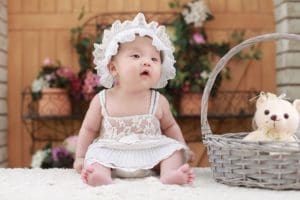Having a child with a disability is often a cause of marital strife, and more than 80 percent of married parents of a child with a disability eventually divorce. When married couples with a disabled child decide to divorce, it’s important to consider the child’s custody, support and guardianship in the legal arrangements. Having a plan in place helps to ensure that the disabled child’s financial, housing, medical and other needs will be met and that the parent with custody will have the right support in place under the law.
Divorce Statistics When a Child Has a Disability
When a married couple has a child with a disability, the stress of the situation can put a considerable strain on the marriage. As a result, many of these couples end up filing for a divorce. If a child has autism, there’s an 85 percent chance that the parents will divorce. If a couple has more than one child with disabilities, the pair has a higher than average chance of divorcing. A divorce mediation lawyer may be able to provide you with legal representation whether you’re filing for divorce or responding to the filing of a divorce by your spouse.
Special Considerations for a Divorce When a Child Has a Disability
There may be special considerations for both the spouse who will have custody and the child when there’s a divorce. In many cases, one of the parents works full-time while the other parent works outside of the home on a part-time basis or doesn’t work at all because of the scope of the child’s disability. The parent who retains custody of a child with disabilities may not be able to continue working or start working outside of the home due to the responsibilities of taking care of the child. This represents an increased need for both spousal and child support in the terms of the divorce. There’s also the related issue of medical decision making for the treatment of the disability. If custody will be shared, parents might have to consider who will take the child for appointments and what he or she will do if the child’s condition worsens. If a custodial parent decides to put the child into an outside nursing facility or other housing for people with disabilities, then this could also affect the terms of the divorce.

Visitation and Custody
Children with a disability as well as typically developing children benefit from stability, predictable routines and consistency in their environments. When you work with a child custody lawyer, these areas may be of increased importance to your divorce settlement. For example, if you’ll have primary custody and your former spouse will have visitation rights, set up a predictable visitation schedule that suits your child’s needs. If your former spouse doesn’t meet the expectations set forth in the agreement, then you may want to have wording included about the termination of visitation rights.
Appointment of a Guardian
Appointment of a legal guardian is a separate topic from custody and visitation, and it’s an important part of family law. Any child, including ones who have a disability, becomes legally able to make his or her own decisions at the age of 18. A guardian is allowed by law to make those decisions for an adult-disabled child. A custodial parent or parent with shared custody could be the guardian. You can also have someone else, such as an adult sibling, aunt or uncle of the child, be the guardian. A non-family member may also be the guardian. The topic of guardianship often comes up in a divorce case.
Child Benefits and State Support Programs
It’s important to know that if a child support lawyer negotiates a support payment system to the child from one or both parents, then the monies received could impact the child’s ability to receive government benefits. The state may reduce the child’s disability income accordingly. In some cases, the parental support could make the child with a disability ineligible for certain programs provided by the state or federal government.
A divorce lawyer may be able to help with your divorce and custody case in Jenkintown for a child with disabilities. Call the Law Office of Joanne Kleiner today at 215-886-1266 or visit our office at 261 Old York Road, Suite 402, Jenkintown, Pennsylvania 19046 to learn more.
Leave a Comment